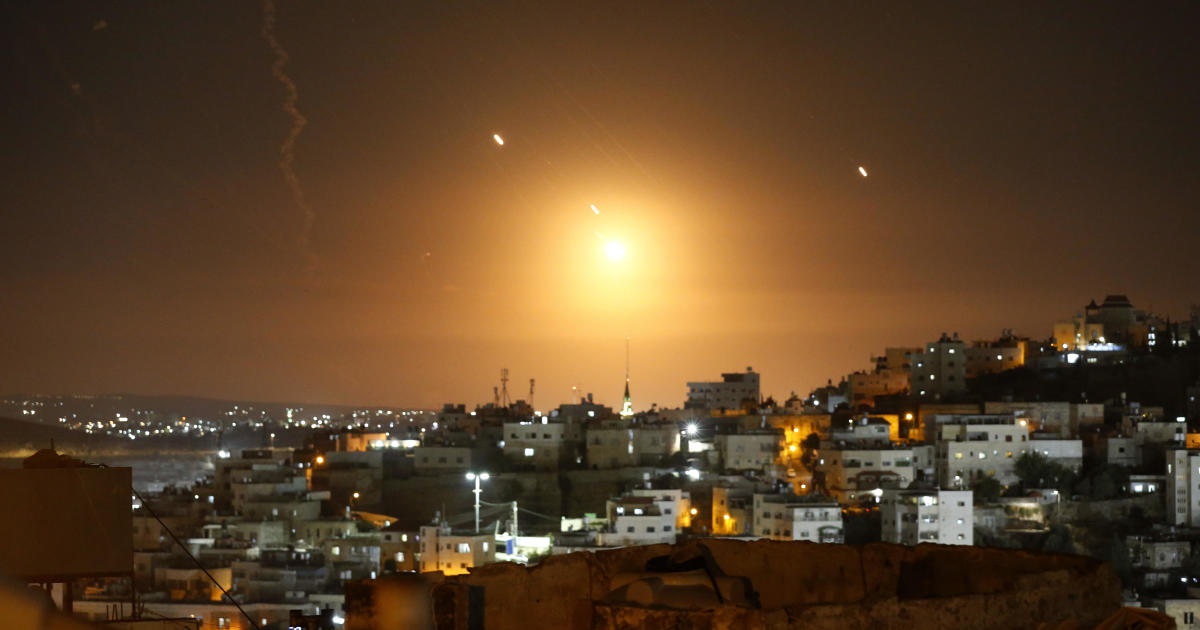Iran’s missile attack on Israel in October 2023 marked a significant escalation in regional tensions. The attack, which involved a large-scale barrage of missiles launched from Iranian territory, prompted a swift and coordinated response from Israel and the United States, highlighting the complexities of the ongoing conflict and the potential for wider regional instability. The incident underscores the deep-seated animosity between Iran and Israel, fueled by decades of proxy conflicts and ideological clashes. The international community watched with bated breath as the situation unfolded, prompting discussions on potential consequences and strategies for de-escalation. This analysis delves into the event, examining the immediate aftermath, the geopolitical implications, and the long-term implications for regional stability.
Iran’s Missile Assault and Israel’s Response
The Scale of the Attack
On Tuesday, October 24, 2023, Iran launched a massive barrage of approximately 200 missiles toward Israeli territory. This unprecedented attack represented a significant escalation in the ongoing conflict, surpassing the April 2023 attack in both scale and intensity. The missiles were launched from within Iran itself, signifying a direct and deliberate act of aggression. The timing of the attack, on the eve of Rosh Hashanah, further added to the symbolic significance of the event.
Israeli Defense Systems’ Interception and Damage Assessment
Israel’s missile defense systems, notably the Iron Dome, played a crucial role in intercepting a significant number of the incoming missiles. The IDF reported a large number of interceptions, effectively neutralizing a considerable portion of the threat. However, reports also indicated that several missiles did land, although damage assessments were ongoing immediately following the event, with initial reports indicating few if any casualties.
US Involvement in Missile Defense
The United States actively participated in the defense effort, deploying naval destroyers to assist in the interception of incoming missiles. This level of US military involvement underscores the strategic partnership between the two countries and the depth of America’s commitment to Israel’s security in the face of significant threat. The coordination between the two nations’ defense systems demonstrated a sophisticated level of cooperation and preparedness. The collaborative nature of the defense further demonstrated a unified front against Iran’s aggressive actions.
Geopolitical Implications of the Attack
Regional Instability and Escalation
Iran’s missile attack significantly heightened regional tensions. The attack stoked concerns that Iran might be emboldened to take further escalatory steps against its adversaries, potentially targeting additional assets or regions. The potential of broader conflict with various factions and nations, ignited by a response to this attack, highlighted an extremely dangerous security situation. This created an increasingly unpredictable and volatile regional environment, increasing fear among various players.
The Role of Proxies and Regional Actors
The actions taken and potential repercussions raise concerns about further entanglement from other regional actors and various factions in response to this conflict. Iran’s network of proxies, including Hezbollah in Lebanon and various groups in other locations, could easily have been involved or drawn into the ongoing conflict. This created a possibility of spreading this violent event beyond Israeli and Iranian borders.
International Condemnation and Response
The international community responded to the missile strike with strong condemnation. Many nations denounced the act as a violation of international law and an unacceptable escalation of tensions. There were widely varied responses and a mix of approaches by multiple world leaders, depending on national interests and alliances.
Long-Term Impacts and Potential for Future Conflicts
The Ongoing Israel-Hezbollah Conflict
The attack occurred amidst already elevated tensions between Israel and Hezbollah in Lebanon. The escalation of the regional conflict creates significant concern about additional engagements and violence in a wider region. The potential for a broader conflict was considerable, impacting various areas beyond Lebanon and Israel.
The Iran Nuclear Program and International Sanctions
The incident had obvious implications for the ongoing debates surrounding Iran’s nuclear program and related international sanctions. Iran’s aggressive acts will potentially result in tighter restrictions on various national assets and potentially harsher international condemnation. Increased international involvement might directly limit the power of Iran’s aggressive acts against other nations and its internal activities.
US Strategy and Middle East Involvement
The United States’ strong response to the Iranian attack underlined America’s long-standing commitment to Israel’s security and its significant role in maintaining stability in the Middle East. Continued significant investment in defensive capabilities will be critical to ensuring security within this volatile region for the forseeable future.
Takeaway Points
- Iran’s missile attack on Israel marked a significant escalation in regional tensions, testing the limits of international norms.
- Israel and the United States acted decisively to defend against the attack, highlighting the strong military and intelligence collaboration between both countries.
- The event raised concerns about increased regional instability and potential further escalation between Iran and other states.
- International actors expressed widespread condemnation, underscoring the broad concern regarding such provocative action.
- The attack’s aftermath underscored the multifaceted challenges of addressing this conflict and highlighted the fragility of regional security.




